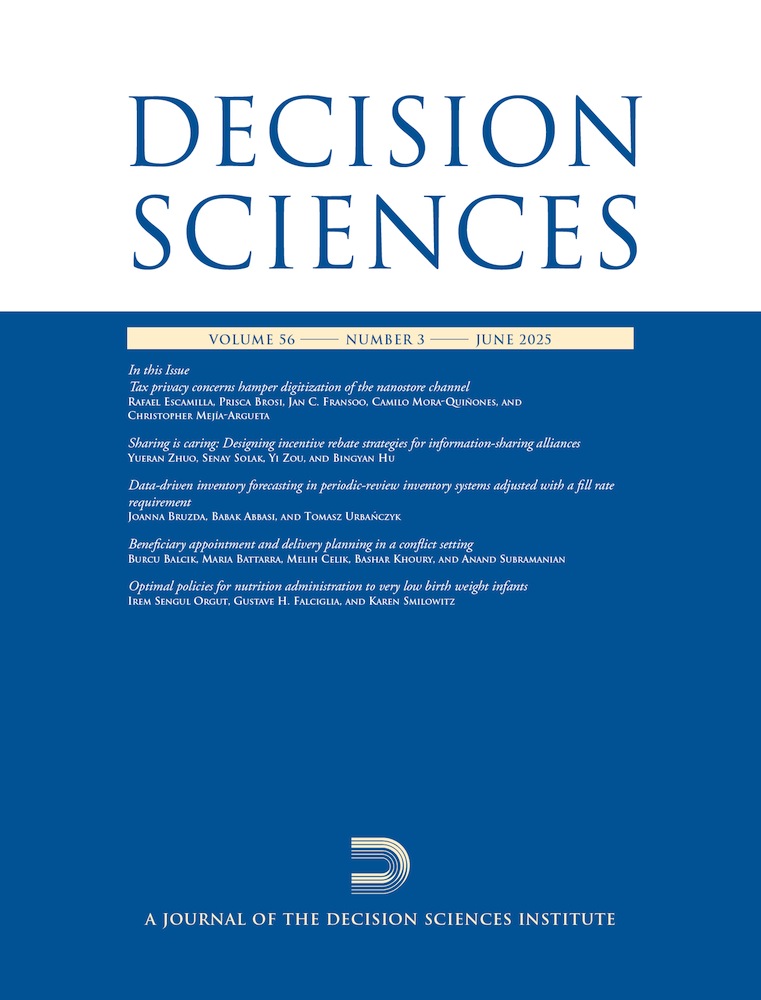Managing context in Six Sigma projects: New themes from a methods-only replication
Abstract
We conduct a methods-only replication of Nair, Malhotra, and Ahire's study by analyzing 13 Six Sigma (SS) projects from nine small- to medium-sized enterprises (SMEs). Nair et al. analyzed 10 SS projects from seven large firms and found support for three propositions associating themes (i.e., expanded scope of analysis, clarity of metrics, and cross-functional integration) contributing to SS project success, as well as 10 propositions associating project contextual factors, project management elements, and themes. Our replication provides support for two of the original propositions, partial support for five original propositions, and no support for five original propositions. Note that one of the 13 original propositions from Nair et al. could not be replicated given data restrictions. These replication results suggest that SS project success and their associations with project management elements and project context are contingent on firm size. Importantly, for SMEs, unlike larger firms, expanded scope of analysis, clarity of metrics, and cross-functional integration are not important contributing factors to SS project success in SMEs. Instead, we derived two new themes (i.e., time-to-completion and prioritization) and seven corresponding propositions that appear to better explain how SMEs can manage SS project context to improve SS project performance. These two new themes illustrate the need for SS project teams within SMEs to be amenable to (a) emphasizing quick wins and (b) being more selective in pursuing process drivers for improvement.




